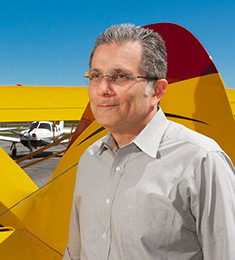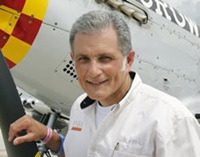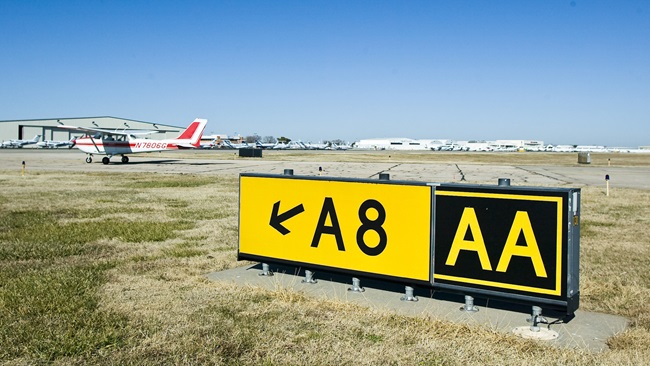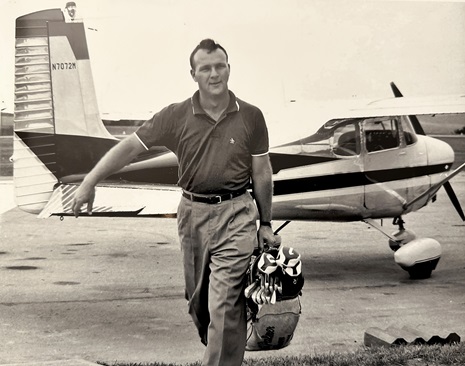

Warren Silberman
- Former Manager, FAA Aerospace Medical Certification
- Doctor of Osteopathic Medicine
- Expert in Aerospace/Preventive Medicine
- Pilot since 1986
- PPS participants-only:
Article archives >>
New medical certification policy for heart valves, pacemakers
In a prior article I discussed some of the recent FAA protocol changes for heart attacks (myocardial infarction) and coronary artery disease. In this article I shall discuss changes with heart valve replacement and pacemakers. Members can refer to the medical certification protocols on AOPA’s online medical section.
Both heart valve replacement and permanent heart pacemaker insertion are “specifically disqualifying medical conditions.” This means that if you hold any class of medical certificate you should self-ground (FAR 61.53) until you obtain a special issuance (waiver); if you see your aviation medical examiner (AME), he or she cannot issue you a medical until you are “cleared” by the FAA's medical certification people.
Under the previous policy, the FAA would only consider airmen for a waiver if they had a single valve replacement. The cardiologists who assist the FAA with medical policy guidelines felt that if you had two valves replaced it would be “double the trouble,” and that there was a greater aeromedical risk for significant complications with two valves. They have been granting and will continue to grant special issuance for airmen who had one valve replaced and the other heart valve repaired. Over recent years, the general rule was that an airmen with two valves replaced was denied. The FAA is now going to consider all airmen of all classes with two valve replacements. The airman must undergo the same initial evaluations as a single valve and all cases will be evaluated by the federal air surgeon's cardiology consultant panel.
The period of “observation” of “grounding” after the surgical procedure for valve replacement has not changed. It is still six months for both single and double valve replacements. All double valve replacement cases will be sent for review at the federal air surgeon level, even after the panel makes a favorable recommendation.
As far as insertion of a permanent heart pacemaker, airmen of all classes of medical certificate can obtain a special issuance. Airmen must still wait two months after the initial insertion of the pacemaker. The change is that there is no longer a two-month wait for someone who just had the battery generator replaced. These airmen can now be considered after they have surgically healed and this could be as soon as 10 days after the procedure. If the lead(s) are replaced, it will still be a two-month recovery period.
Pacemaker dependency is defined by the FAA as a heart rate of 40 beats or less when the pacemaker is turned off or down to its lowest setting. Currently, the FAA allows certification only at third class for airmen who are considered to be “pacemaker dependent.” The Federal Air Surgeon will be evaluating whether airmen who need first- or second-class medicals will be allowed to obtain a special issuance if they are pacemaker dependent.
For those members who belong to AOPA's Pilot Protection Services, you have the benefit of calling and speaking to one of the AOPA Medical Certification specialists for personal assistance on your medical issues.
For more expert advice and professional assistance with protecting your pilot and medical certificates all year round, visit AOPA Pilot Protection Services online.
New medical certification policy for heart valves, pacemakers
In a prior article I discussed some of the recent FAA protocol changes for heart attacks (myocardial infarction) and coronary artery disease. In this article I shall discuss changes with heart valve replacement and pacemakers. Members can refer to the medical certification protocols on AOPA’s online medical section.
Both heart valve replacement and permanent heart pacemaker insertion are “specifically disqualifying medical conditions.” This means that if you hold any class of medical certificate you should self-ground (FAR 61.53) until you obtain a special issuance (waiver); if you see your aviation medical examiner (AME), he or she cannot issue you a medical until you are “cleared” by the FAA's medical certification people.
… To continue reading…
Please login or join AOPA and AOPA Pilot Protection Services now to have access to these exclusive expert resources.
Dr. Warren Silberman is the former manager of FAA Aerospace Medical Certification and a doctor of osteopathic medicine. A pilot since 1986, he is recognized nationally as an expert in aerospace/preventative medicine, and is a regular writer for AOPA’s Pilot Protection Services.


Warren Silberman
- Former Manager, FAA Aerospace Medical Certification
- Doctor of Osteopathic Medicine
- Expert in Aerospace/Preventive Medicine
- Pilot since 1986
Both heart valve replacement and permanent heart pacemaker insertion are “specifically disqualifying medical conditions.” This means that if you hold any class of medical certificate you should self-ground (FAR 61.53) until you obtain a special issuance (waiver); if you see your aviation medical examiner (AME), he or she cannot issue you a medical until you are “cleared” by the FAA's medical certification people.
Under the previous policy, the FAA would only consider airmen for a waiver if they had a single valve replacement. The cardiologists who assist the FAA with medical policy guidelines felt that if you had two valves replaced it would be “double the trouble,” and that there was a greater aeromedical risk for significant complications with two valves. They have been granting and will continue to grant special issuance for airmen who had one valve replaced and the other heart valve repaired. Over recent years, the general rule was that an airmen with two valves replaced was denied. The FAA is now going to consider all airmen of all classes with two valve replacements. The airman must undergo the same initial evaluations as a single valve and all cases will be evaluated by the federal air surgeon's cardiology consultant panel.
The period of “observation” of “grounding” after the surgical procedure for valve replacement has not changed. It is still six months for both single and double valve replacements. All double valve replacement cases will be sent for review at the federal air surgeon level, even after the panel makes a favorable recommendation.
As far as insertion of a permanent heart pacemaker, airmen of all classes of medical certificate can obtain a special issuance. Airmen must still wait two months after the initial insertion of the pacemaker. The change is that there is no longer a two-month wait for someone who just had the battery generator replaced. These airmen can now be considered after they have surgically healed and this could be as soon as 10 days after the procedure. If the lead(s) are replaced, it will still be a two-month recovery period.
Pacemaker dependency is defined by the FAA as a heart rate of 40 beats or less when the pacemaker is turned off or down to its lowest setting. Currently, the FAA allows certification only at third class for airmen who are considered to be “pacemaker dependent.” The Federal Air Surgeon will be evaluating whether airmen who need first- or second-class medicals will be allowed to obtain a special issuance if they are pacemaker dependent.
For those members who belong to AOPA's Pilot Protection Services, you have the benefit of calling and speaking to one of the AOPA Medical Certification specialists for personal assistance on your medical issues.
For more expert advice and professional assistance with protecting your pilot and medical certificates all year round, visit AOPA Pilot Protection Services online.
To continue reading, please log in or join AOPA now to have access to these exclusive expert resources.
In a prior article I discussed some of the recent FAA protocol changes for heart attacks (myocardial infarction) and coronary artery disease. In this article I shall discuss changes with heart valve replacement and pacemakers. Members can refer to the medical certification protocols on AOPA’s online medical section.


